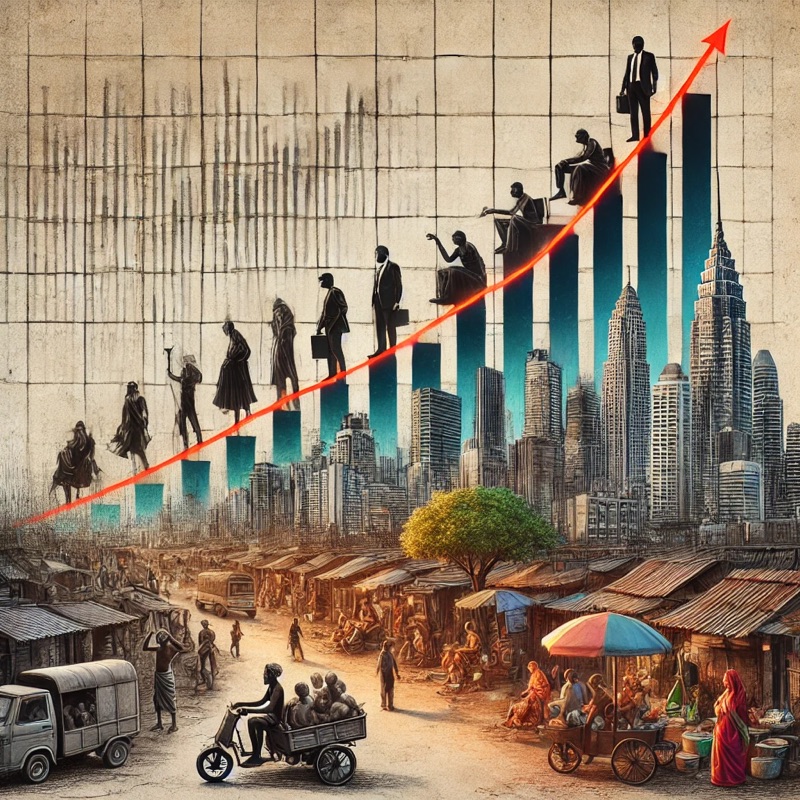The System is Broken—And I’m Not Afraid to Say It
Disclaimer: Article written based on research & lived experiences as a late diagnosed AuDHD woman.
What If Things Had Been Different?

If our neurodivergence had been recognized earlier, if our strengths and challenges had been understood instead of dismissed, how different would our lives have been? Would we have struggled so much with deciding what career path to take? Would we have wasted years trying to fit into expectations that were never meant for us? If someone had guided us based on how our brain actually worked, instead of how they assumed it should, would we have found our paths sooner, with less pain and confusion at?
These are not just passing thoughts. They are questions that play in my mind, especially in the quiet moments when I am not working—when there’s nothing to distract me from the weight of what I have endured. The reality is, like many others, I grew up in a world that wasn’t designed for neurodiverse minds. A world where our curiosity is seen as defiance, our need for movement labeled as restlessness, and our struggles with traditional learning mistaken for carelessness or lack of effort.
The Frustration of Outdated Systems
Now, as I work in the field closely related to autism, I face a different kind of frustration—one that stems from a system that is skeptical to change. Even with growing awareness, many professionals—certified psychologists and psychiatrists—still refuse to update themselves with current research. They cling to outdated knowledge, dismissing the lived experiences of neurodivergent individuals. Instead of adapting to new understandings of autism, ADHD, and even other neurological differences, they remain stuck in rigid, narrow definitions that do more harm than good.
Their personal biases of “mental retardation” often overrule their professional duties. They are more invested in defending what they learned years ago than in truly listening to the people they claim to help. And this refusal to change has real consequences.
When Professionals Dismiss Lived Experience

When those of us who were undiagnosed as children finally receive a diagnosis in adulthood and speak about our struggles, we are often met with skepticism. ( I will not even begin with the struggles and number of misdiagnosis one can face while trying to get a diagnosis as an adult, because that will need a separate blog.)
We talk about masking, about the exhaustion of navigating a neurotypical world, about how we learned to internalize our struggles because no one saw them. We explain how introversion or over compensating extroversion & sensory processing differences shaped our childhoods, how our experiences as undiagnosed individuals affected our confidence, our relationships, and our mental health.
And yet, many professionals are quick to dismiss us, saying, “Autism and introversion are completely different. They’re not related.”

Why? Because that’s what their textbooks told them. And somehow, what they read in an outdated syllabus is considered more valid than what we—autistic individuals who have lived through these experiences—are saying.
Well, I have been known all my life as an introvert while I quietly internalized my struggles and became chronically depressed by the age of 24.
Rote Learning, Bookish Knowledge, and the Politics of Ignorance
The real problem is this: rote learning and bookish knowledge to secure a degree, without the desire to learn from real life will only get you so far—until someone really starts questioning you. When professionals rely solely on outdated textbooks and refuse to engage with real-world experiences, they fail the very people they claim to serve.
It’s the same as politicians sitting in air-conditioned offices trying to solve real-world problems they have no lived experience of. They pass laws and make policies for people they don’t understand, and because they lack firsthand experience, they also lack empathy. They decide what’s “best” based on assumptions rather than reality—just like professionals who dismiss lived autistic experiences because they don’t align with their theoretical knowledge.

Sometimes, I wonder if they know exactly what they’re doing—if they understand the capitalistic gain in keeping us under treatment rather than actually supporting us in ways that empower us. The system benefits from keeping us confused, dependent, and constantly seeking validation from professionals who don’t truly see us. It thrives on forcing assumption-based and observation-driven solutions onto us instead of actually listening to what we need.
Because if they truly listened—if they truly understood—they might have to admit that the system itself is broken.
And that scares them more than anything.
So I ask you—how much of what you believe about autism, ADHD, and neurodiversity is based on what you’ve been told rather than what you’ve actually learned from the people who experience it? Are you willing to challenge those beliefs? Or will you continue to uphold a system that refuses to listen?
Comments
Post a Comment